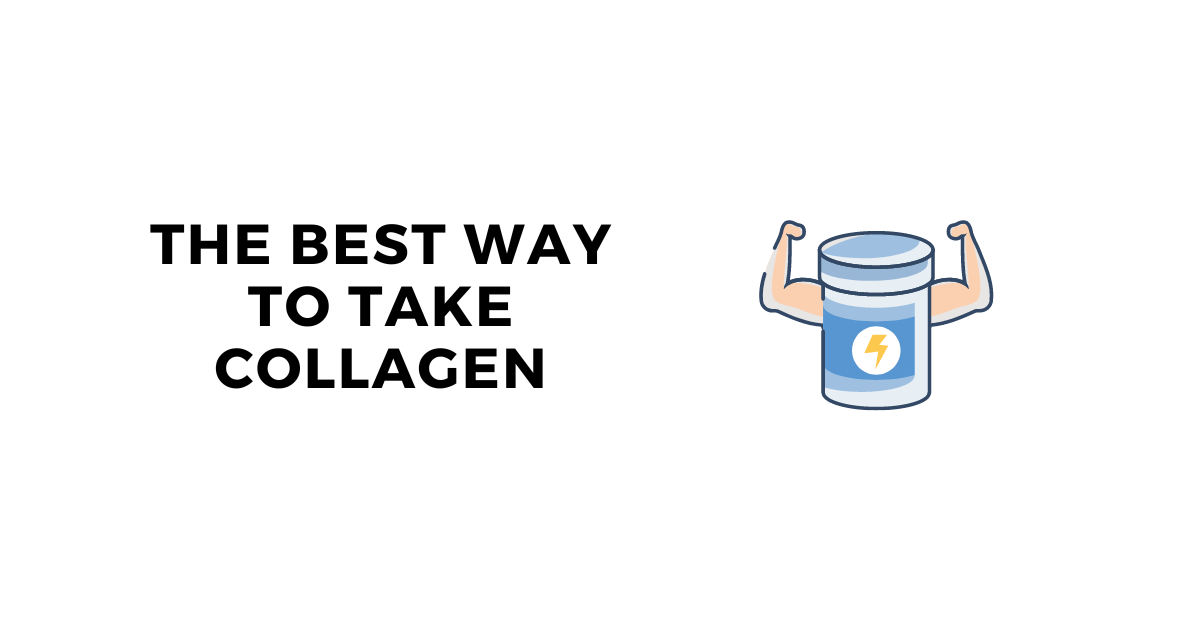
Best Way to Take Collagen: Optimal Format & Nutrients For Glowing Skin
Best Way to Get Collagen
You want to take collagen for health reasons, but you don't know the best way to take it or what nutrients you need for best results. It's also expensive, so you don't want to waste your money!
There are many different ways to take collagen supplements, powders and pills. What is the best way to take collagen for your specific health goals and desires?
This guide will teach you the best way to take collagen depending on your goal, as well as which nutrients you should include in order to achieve best results.
Best Way to Take Collagen
The best way to take collagen is to get it from whole food sources like bone broth. Failing that, you can try collagen peptide supplements or take individual amino acids glycine, proline and hydroxyproline.

1. Whole Food Sources
Whole foods not only provide collagen but also offer a range of other beneficial nutrients that help your absorb it properly and support your overall health. Here are some excellent whole food sources of collagen:
- Bone Broth: Bone broth is widely regarded as one of the best food that’s high in collagen. And it’s the source of collagen I like best. It is made by simmering animal bones and connective tissues, such as chicken or beef, for an extended period. The slow-cooking process extracts collagen and other valuable compounds, resulting in a nutrient-rich broth. The best one is the non-gmo chicken bone broth from Bluebird Provisions.
- Fish with Skin: Fish, especially varieties like salmon and mackerel, contain collagen in their skin. Consuming fish with the skin intact provides not only collagen but also omega-3 fatty acids, which are known for their numerous health benefits.
- Chicken Skin: Just like fish, chicken skin has tons of collagen. It is practically nature's multivitamin with all the vitamins and minerals including potassium and magnesium. Don't skip the skin next time.
- Gelatinous Cuts of Meat: Certain cuts of meat have more collagen due to their connective tissues. These include cuts like oxtail, short ribs and beef shank. Slow cooking or braising these cuts can break down the collagen, resulting in tender and flavorful dishes.
- Bone-in Meat: Choosing bone-in cuts of meat, such as chicken thighs or drumsticks, can provide small amounts of collagen from the bones and surrounding tissues.
- Eggs: Egg whites have a protein called proline, which is one of the amino acids necessary for collagen production in the body. Including whole eggs in your diet can contribute to collagen synthesis.
For a full list of foods with their exact grams per serving, read my guide on foods that contain collagen.
My Story
I had a problem I didn’t really want to talk about, but it was really affecting my quality of life. I was struggling with uncomfortable bloating. I know, bloating doesn’t seem like a big deal.
Well, it was something I really wanted to take care of. I discovered that collagen could potentially help alleviate that issue. I decided to give it a try. Little did I know that finding the right way to take collagen would turn into quite an adventure.
I saw lots of pills, powders and other convenient solutions, but I really wanted a more holistic, whole-life approach to increasing my collagen.
I discovered that bone broth, in particular, was not only a rich source of collagen but also offered other essential minerals that could benefit my overall health. Not only did it help settle my stomach and reduce bloating, but it also provided a host of other amazing benefits.
2. Collagen Powders, Peptides, Supplements
When it comes to taking collagen, collagen powders, peptides and supplements have gained popularity for their convenience and ability to provide concentrated doses. Here are some of the best ways to incorporate collagen powders, peptides and supplements into your routine:

- Collagen Powders: Collagen powders are a common form of collagen supplementation. They are typically flavorless and easily soluble, making them versatile for various uses. You can mix collagen powder into your favorite beverages such as water, smoothies, coffee or tea. Some people also put collagen powder into recipes like baked goods or soups.
- Collagen Peptides: Collagen peptides are shorter chains of amino acids derived from collagen. They are easily absorbed by the body, making them a popular choice for supplementation. Collagen peptides can be found in the form of powders or capsules. Similar to collagen powders, you can mix collagen peptides into your drinks or recipes for easy consumption.
- Collagen Supplements: Collagen supplements come in various forms, including capsules, tablets or liquid formulations. These supplements provide a convenient and standardized dosage of collagen. Simply follow the instructions on the packaging regarding dosage and administration.
Looking for a supplement recommendation? Read my guide to finding the best collagen powder for weight loss.
3. Individual Amino Acids Glycine, Proline, Hydroxyproline
Collagen, in general, with all of it’s varieties of synthesis, variables and structure, was found to be helpful in maintaining various important structures including the skin, cornea, nails, and more throughout 22 studies analyzed in a systematic review published in the National Library of Medicine in 2022 (1).
Collagen is made up of 1/3rd glycine and about 1/3rd proline and hydroxyproline. For this reason, you can get many of the same benefits by taking these individual amino acids.
This is a good option if you are vegetarian or vegan and looking for a vegan collagen alternative. I can't vouch for every brand you find that they are plant based, but some of them are.
Here's how you can incorporate individual amino acids that are important for collagen synthesis, such as glycine, proline and hydroxyproline into your diet:
Glycine
Glycine is an amino acid that plays a crucial role in collagen production. It can be found in various protein-rich foods. Some dietary sources of glycine include:
- Gelatinous Meats: Animal-based proteins like beef, pork, chicken and turkey contain glycine. Look for fatty cuts with connective tissue. Basically the same meats I mentioned above for collagen.
- Seafood: Certain types of fish and shellfish, such as salmon, tuna, shrimp and scallops, contain glycine.
- Bone Broth: As mentioned earlier, bone broth is an excellent source of collagen. It also contains glycine due to the breakdown of collagen during the cooking process. Consuming bone broth regularly can provide glycine along with other beneficial nutrients.
Proline and Hydroxyproline
Proline and hydroxyproline are non-essential amino acids that are essential for collagen synthesis. While they can be synthesized in the body, consuming dietary sources can support collagen production. Some food sources of proline and hydroxyproline include:

- Animal Connective Tissues: Collagen-rich connective tissues from animals, such as tendons, cartilage and skin, contain proline and hydroxyproline. Slow-cooked dishes that include cuts like oxtail, beef shank or chicken feet can be sources of these amino acids.
- Gelatin: Gelatin is derived from collagen and contains proline and hydroxyproline. Adding gelatin to recipes like desserts, gummies or homemade jellies can be a tasty way to increase your intake of these amino acids.
- Supplements: Proline and hydroxyproline are also available as individual amino acid supplements. However, it's important to consult with a healthcare professional before considering amino acid supplementation.
5 Best Forms of Collagen to Take
The best forms of collagen to take are bone broth, collagen rich foods, collagen peptides, supplements, pills and gelatin.
1. Bone Broth
When it comes to collagen supplementation, bone broth is considered one of the best forms to take. Here’s why:
- Rich in Collagen: Bone broth is an excellent natural source of collagen. During the cooking process, collagen from the bones and connective tissues breaks down, resulting in a collagen-rich broth. Consuming bone broth regularly can provide your body with the necessary building blocks for collagen synthesis.
- Amino Acid Profile: In addition to collagen, bone broth is also rich in other beneficial amino acids, such as glycine, proline and glutamine. These amino acids support various aspects of health, including gut health, joint health and immune function.
- Nutrient Density: Bone broth contains a wide range of nutrients, including minerals like glucosamine, chondroitin sulfate, calcium, magnesium and phosphorus, as well as vitamins.
- Gut Health: The gelatin present in bone broth can support a healthy gut lining and aid in digestion. It may help with conditions like leaky gut syndrome and improve nutrient absorption.
- Easy to Prepare or Purchase: Bone broth can be made at home by simmering bones, vegetables and herbs in water for several hours. Alternatively, high quality bone broth like the one from Bluebird Provisions is readily available for purchase in stores and online, making it convenient for those who prefer a ready-to-use option.

2. Collagen Rich Foods like Skin, Gelatinous Meats
I mentioned this above, but collagen rich foods include the following:
- Skin of Poultry and Fish: The skin of poultry, such as chicken or turkey and certain types of fish, like salmon or mackerel, contain collagen. Eating these foods with the skin on in your meals can provide a natural source of collagen. Just ensure that the poultry and fish are cooked in a healthy manner to avoid excessive fat or additives.
- Gelatinous Cuts of Meat: Certain cuts of meat that contain a higher amount of connective tissues and collagen can be considered gelatinous cuts. Examples include oxtail, beef shank or pork trotters. Slow cooking or braising these cuts can break down the collagen and result in tender, flavorful dishes.
- Organ Meats: Organ meats, like liver or heart, are not only nutrient-dense but also contain collagen. They can be a valuable addition to your diet if you enjoy their flavor. Ensure that the organ meats are sourced from healthy, pasture-raised animals.
- Gelatin: Gelatin, derived from collagen, is a versatile ingredient that can be used in various recipes. It can be made by cooking collagen-rich animal tissues, like bones or skin and then cooling and solidifying the resulting liquid. Adding gelatin to your diet through homemade gummies, desserts or soups can provide collagen and add a pleasant texture to your dishes.
3. Collagen Peptides Supplements
When it comes to collagen supplementation, collagen peptides supplements are considered one of the best forms to take if you don't want to get it from food. Collagen peptides, also known as hydrolyzed collagen, are shorter chains of amino acids derived from collagen.
It may be easier for your body to absorb them than whole collagen. In a study published in ACS Publications in 2015, rats were fed collagen and the amino acid profile of their plasma analyzed. More than 63.4% of the collagen was absorbed as a peptide (2).
This may indicate that collagen peptides are easily absorbed by the body due to their smaller molecular size, however this is not conclusive.
Collagen peptides supplements provide a concentrated dose of collagen. They typically contain a specific type of collagen, such as type I or type III, which are the most abundant types in the human body. This targeted approach allows for a higher intake of collagen compared to whole food sources.
My wife prefers to get her daily dose from a supplement, while I will typically drink bone broth or add it to my morning porridge (don't knock it until you try it).
According to her: powders are the most convenient way because pills are hard to swallow for her and you have to take so many of them to get 10 grams worth.
Looking for a recommendation? Read my list of the best collagen supplements for skin.
4. Collagen Pills
Collagen pills, also known as collagen capsules or tablets, are another popular form of collagen supplementation. They offer a convenient and straightforward way to take collagen.
They can be taken with a glass of water and you don't have to worry about mixing powders or measuring doses. This makes them a convenient option for individuals who are always on the go or prefer a hassle-free approach to supplementation.
Unlike collagen powders or liquid supplements, collagen pills are tasteless and odorless. This is advantageous for those who may have sensitivity to certain tastes or simply prefer not to taste the collagen supplement.
They come in pre-measured doses, ensuring that you're getting a consistent amount of collagen with each pill. This can be helpful if you prefer a standardized dosage and want to track their collagen intake accurately.
They have a longer shelf life compared to some other forms of collagen supplements. They are typically packaged in a way that protects the collagen from moisture and air, preserving its quality over time.
5. Gelatin
Gelatin is produced by cooking collagen-rich animal tissues, such as bones, skin or connective tissues, until they break down and form a gelatinous substance.
It is primarily composed of collagen, making it a valuable source of this essential protein. Gelatin gives your body the building blocks needed for collagen synthesis.

The gelatin in bone broth and other sources can support digestive health. It helps form a protective lining in the gut, potentially aiding conditions like leaky gut syndrome. Gelatin may also improve digestion by promoting the secretion of gastric juices.
Learn the differences between collagen and gelatin.
Gelatin can be used in various culinary applications. It can be used to make desserts, gummies, custards or added to soups and stews for thickening. Its ability to gel makes it a versatile ingredient in the kitchen.
Gelatin can be added to a variety of recipes, such as smoothies, desserts, sauces and even homemade bone broth. It can be a valuable addition to recipes that require thickening or a gel-like consistency.
If you find the texture or taste of gelatin off-putting experiment with different recipes and find ways to incorporate gelatin that suit your preferences and dietary needs.
What nutrients should be taken with collagen?
To get the most of your absorption and digestion, make sure you take the following nutrient with collagen:
- Vitamin C: Vitamin C plays a crucial role in collagen synthesis. It is necessary for the production of collagen fibers and helps stabilize the collagen structure. Including foods rich in vitamin C, such as citrus fruits, berries, kiwi and bell peppers or taking a vitamin C supplement (50 mg is all you need), can support collagen production and enhance its effectiveness.
- Vitamin E: Vitamin E is an antioxidant that can help protect collagen from damage caused by free radicals. It works synergistically with vitamin C to support collagen synthesis and maintain its integrity. Good food sources of vitamin E include nuts, seeds, spinach and avocados. Vitamin E supplements are also available.
- Copper: Copper is a trace mineral that is involved in the cross-linking of collagen fibers, which contributes to the strength and stability of collagen. Consuming foods rich in copper, such as shellfish organ meats, nuts, seeds and legumes, can provide an adequate amount of this mineral. However, it's important to note that excessive copper intake can be harmful, so it's best to obtain copper from dietary sources rather than supplements unless advised by a healthcare professional.
Why aren't collagen creams on the list?
Collagen creams are not on the list of nutrients to be taken with collagen because collagen molecules are too large to effectively penetrate the skin when applied topically, according to a study published in the National Library of Medicine in 2020 (3).
Collagen peptides are larger than the pores on your skin, which limits their ability to be absorbed into the deeper layers where collagen synthesis occurs.
While multiple studies have shown the benefits of oral collagen supplementation and collagen in the diet, as indicated by a review of collagen protein ingestion published in the Oxford Academic (4), the same is not true for collagen in skin products.
While collagen creams may contain collagen-derived ingredients, such as hydrolyzed collagen or collagen peptides, the molecules are unlikely to reach the dermis where new collagen is produced. The primary function of collagen creams is to provide hydration and moisturization to the outermost layer of the skin, helping to improve its appearance and texture.
That being said, collagen creams may still offer some benefits. They can help temporarily plump and hydrate the skin, resulting in a smoother and more youthful appearance. A study published in 2020 in the National Library of Medince found that collagen had benefits in moisturizing the stratum corneum layer of the skin and reducing the effects of skin aging (5).
Additionally, collagen creams often contain other ingredients like antioxidants, vitamins and hyaluronic acid, which can further support skin health and promote a healthy-looking complexion.
If your goal is to increase collagen levels in the body, consuming collagen internally, either through food sources or supplements, is generally considered more effective. By providing the necessary building blocks, such as amino acids, these methods support collagen synthesis from within the body.
How much collagen should be taken to get the best results?
The optimal dosage of collagen per day can vary depending on factors such as individual needs, health goals and the specific form of collagen being used. There is no one-size-fits-all answer, as the effectiveness of collagen supplementation can be influenced by factors like age, body weight, overall diet and lifestyle.
While there is no established Recommended Dietary Allowance (RDA) for collagen, here are some general guidelines:
- Collagen Peptides Supplements: The typical recommended dosage for collagen peptides supplements is around 5-15 grams per day.
- Whole Food Sources: If you are obtaining collagen from whole food sources, such as bone broth or collagen-rich foods like skin or gelatinous meats, there is no specific dosage guideline. Including these foods as part of a balanced diet can provide some collagen naturally, but the exact amount may vary depending on the specific food and preparation method.
It's worth noting that the body's ability to absorb and utilize collagen can vary among individuals. Some people may experience noticeable benefits with lower doses, while others may require higher amounts to achieve desired results.
Also, remember that consistency is key when it comes to collagen supplementation. Regular and sustained use over a period of time may yield better outcomes.
Are collagen injections safe?
You may be convinced that collagen supplements or eating some bone broth is fine, but what about collagen injections? Is collagen bad for you in this case?
Collagen injections, also known as dermal fillers or cosmetic fillers, can be safe when performed by a qualified and experienced healthcare professional. The collagen used in these injections is typically derived from purified animal sources or synthetic materials.
Allergic reactions to collagen injections are rare but can occur. You may have allergies to collagen or other components of the injection. It's important to discuss any known allergies or sensitivities with your healthcare provider before undergoing the procedure.
Common side effects of collagen injections may include temporary redness, swelling, bruising or tenderness at the injection site. These effects are typically mild and subside within a few days.
What form of collagen is best for me?
As I said before, I looked into collagen because I was dealing with some annoying bloating and wanted to find a solution. I'm a fan of holistic approaches, so bone broth resonated with me.
I discovered that bone broth is an excellent source of collagen and it also offers other essential minerals that are great for overall health.
I gave bone broth a shot and it made a noticeable difference for me. Not only did it help settle my stomach and alleviate bloating, but it also provided me with important minerals like calcium, magnesium and phosphorus.
What I love about this holistic option is that it's natural and aligns with my preference for whole-food solutions. Instead of relying solely on supplements, I was able to incorporate a traditional remedy into my daily routine. It just felt right for me.
Of course, everyone's experience with collagen can be different and what worked for me might not work the same way for others. We're all unique, after all.
Perhaps you’d just rather have a simpler option than dietary collagen. Whatever collagen works for you is the best collagen source.
If you're interested in trying collagen, I'd recommend giving whatever type of collagen seems right to you a try. Leave a comment on this article if you have specific questions and I will do my best to answer them.
How to Mix Collagen Powder Without Clumping
You’ve finally found the collagen powder you’ve been looking for, only to find yourself wondering, “How do I keep it from clumping?”

It’s not hard. Here’s how:
- Ensure that the container you are using to mix the collagen powder is clean and free from any residue. A dry container helps prevent clumping.
- A whisk, spoon or blender can be used to mix collagen powder effectively.
- Add collagen powder gradually. Instead of adding the entire amount of collagen powder at once, start by adding a small portion to your liquid.
- As you add the collagen powder, stir the mixture continuously and vigorously. Focus on breaking up any clumps that may form. Ensure that the powder is fully dissolved before adding more.
Tips to keep in mind:
- If you're mixing collagen powder into a larger volume of liquid, it can be helpful to dissolve the powder in a smaller amount of liquid first. This was a game changer for me! Once it has fully dissolved in the smaller volume, you can gradually add more liquid while continuing to stir.
- Collagen powder tends to dissolve more easily in warm or room temperature liquids compared to cold liquids.
- Different collagen powder brands may have specific instructions for mixing their products. Be sure to check the packaging or product information for any recommended mixing techniques or tips provided by the manufacturer.
How to Mix Collagen Powder with Hot Beverages
Ensure that the container you use is suitable for hot liquids and can withstand the temperature of your beverage. Heat-resistant glass or ceramic mugs are commonly used for this purpose.
Start by adding the collagen powder to the empty mug before pouring in your hot beverage. Slowly pour your hot beverage of choice into the mug, directly over the collagen powder. It can be hot water, herbal tea, coffee or any other hot liquid you prefer.
Immediately start stirring the mixture vigorously using a spoon or a small whisk. Stir until the collagen powder is fully dissolved and incorporated into the hot beverage. Make sure to scrape the sides and bottom of the mug to ensure thorough mixing.
How to Mix Collagen with Cold Beverages
Follow the instructions above for mixing collagen to mix collagen with cold beverages. Cold beverages can be more challenging to mix collagen powder into.
If you're finding it challenging to achieve a smooth mixture by hand stirring, using a blender or shaker bottle can help break up clumps more effectively. These tools provide better mixing action and can result in a smoother consistency.
How to Use Collagen Powder With Food and Baking
- One of the simplest ways to use collagen powder is by adding it to your favorite smoothies or protein shakes. Simply blend the collagen powder along with your choice of fruits, vegetables, liquid (such as water, milk or plant-based milk) and any other desired ingredients.
- Mix collagen into yogurt or homemade puddings to increase their nutritional content.
- Sprinkle collagen powder into soups or sauces to fortify them and enhance their nutritional value.
- Collagen can be a beneficial addition to homemade energy balls, protein bars or granola bars. Mix it with the other ingredients in the recipe, such as oats, nuts, seeds, sweeteners and nut butter.
- Collagen can be incorporated into baked goods like cookies, muffins or bread. You can add it to the dry ingredients and mix it thoroughly before combining it with the wet ingredients. Follow your favorite baking recipe while keeping in mind the ratio of collagen powder to the other ingredients.
- Upgrade your breakfast by adding collagen powder to pancake or waffle batter. Simply mix the collagen powder with the dry ingredients and proceed with the recipe as usual.
Bone broth may not be for everyone, however. Along my journey, I stumbled upon numerous other fantastic ways to incorporate collagen into our daily lives. These options might be even better suited for you.
From collagen-rich foods like skin and gelatinous meats to collagen peptides supplements, collagen pills and even gelatin, there's a wide array of choices to explore.
And trust me, I've done the research, so I can't wait to spill all the details and help you find the perfect way to take collagen that suits your preferences and lifestyle.
Closing Thoughts
Adding collagen to your diet is a powerful way to improve your health, but it's important to choose the right type of collagen, take it the right way and to combine it with other nutrients for best long-term results.
While my wife favors a powder that she can mix with her electrolyte drink, I prefer a bone broth for the protein. You'll have to experiment to see which form is best for you.
Try a high protein bone broth today, like the one from Bluebird Provisions to get started on your journey to better health!
Do you have any specific questions? Leave a comment and I will personally answer it.
Source
- https://www.ncbi.nlm.nih.gov/pmc/articles/PMC9177216/
- https://pubs.acs.org/doi/abs/10.1021/jf5057502
- https://www.ncbi.nlm.nih.gov/pmc/articles/PMC7070905/#:~:text=Drug%20molecules%2C%20as%20well%20as,(SC)%20%5B29%5D.
- https://academic.oup.com/nutritionreviews/article/80/6/1497/6380930
- https://www.ncbi.nlm.nih.gov/pmc/articles/PMC7070905/#:~:text=Drug%20molecules%2C%20as%20well%20as,(SC)%20%5B29%5D.

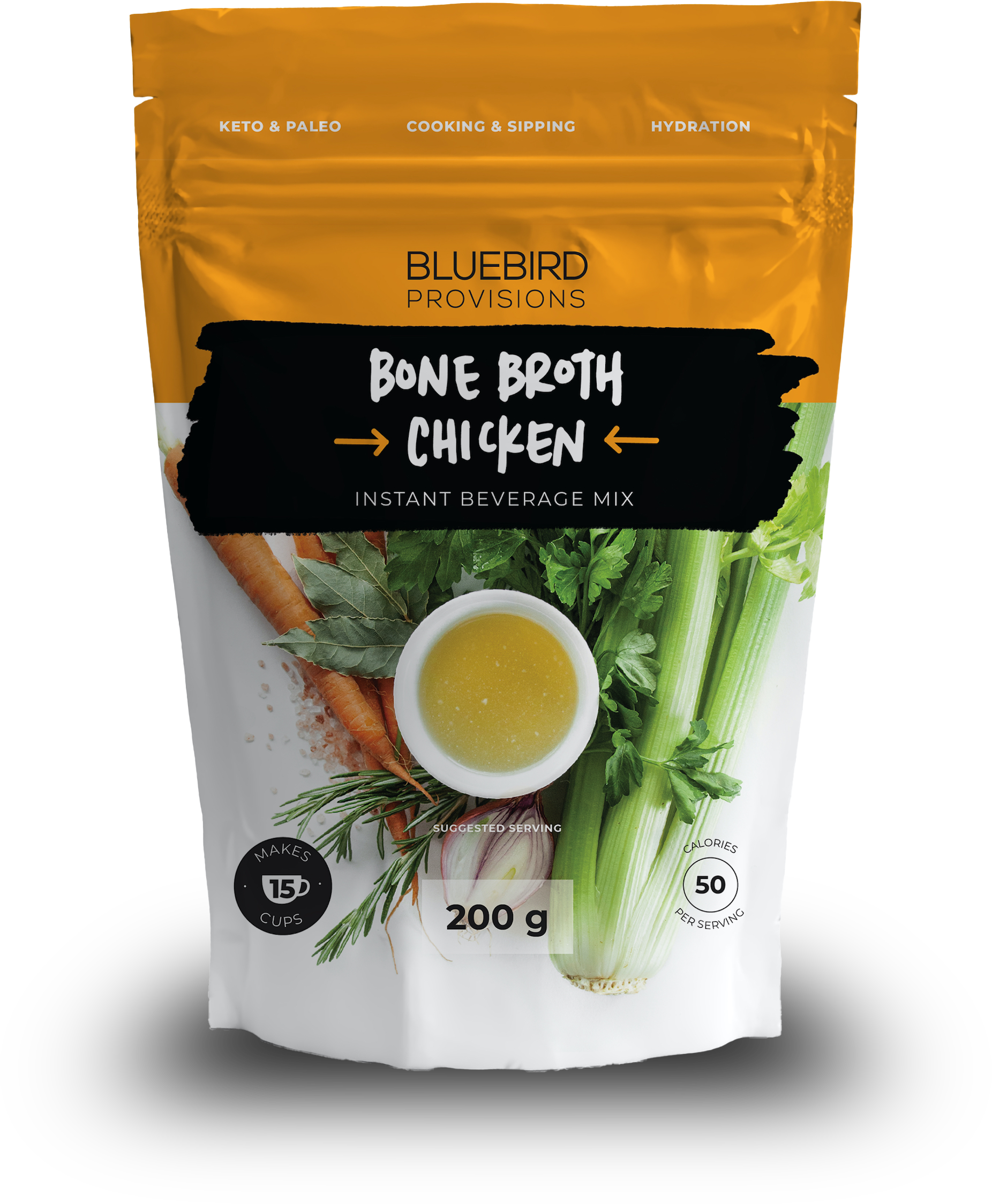
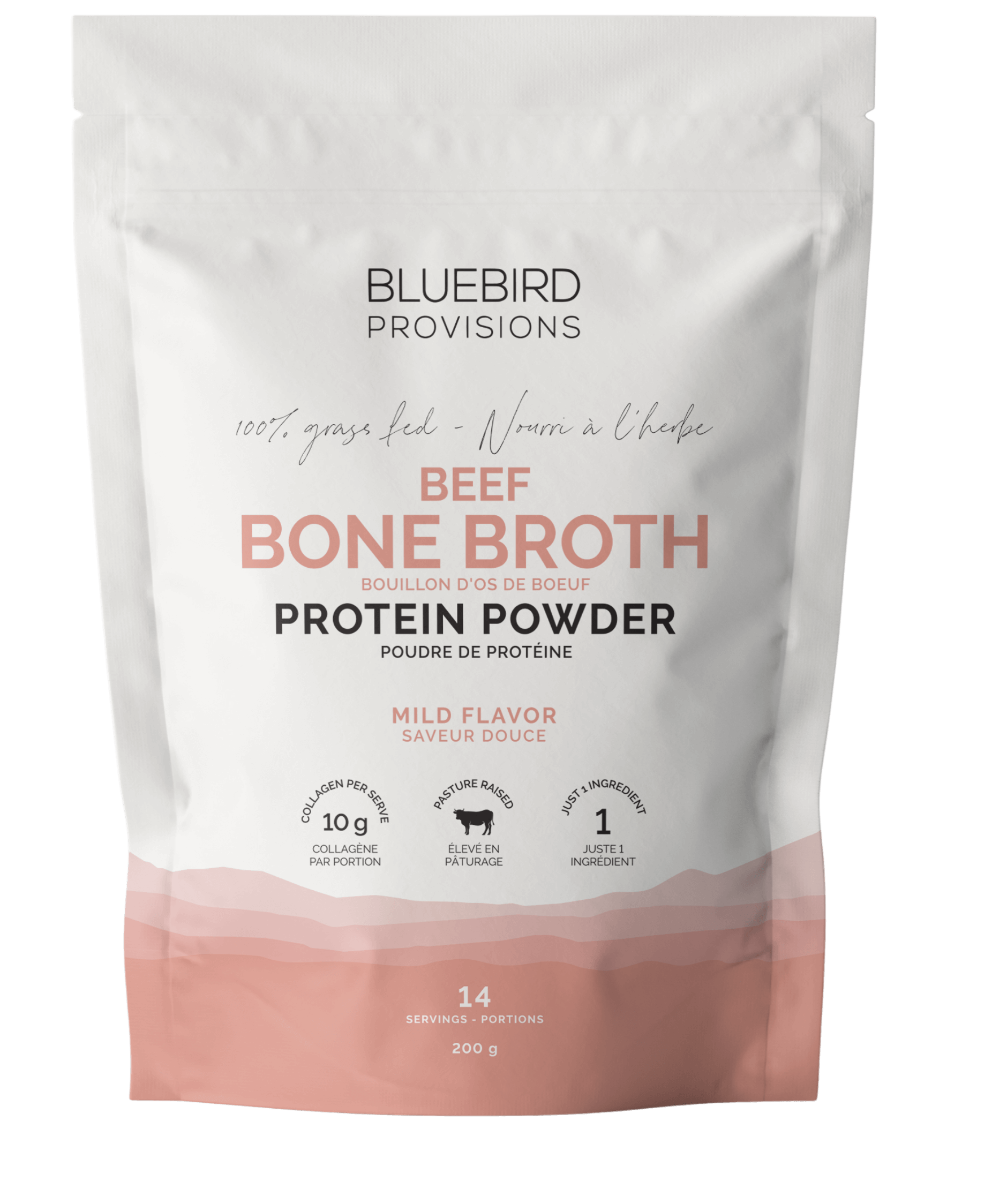
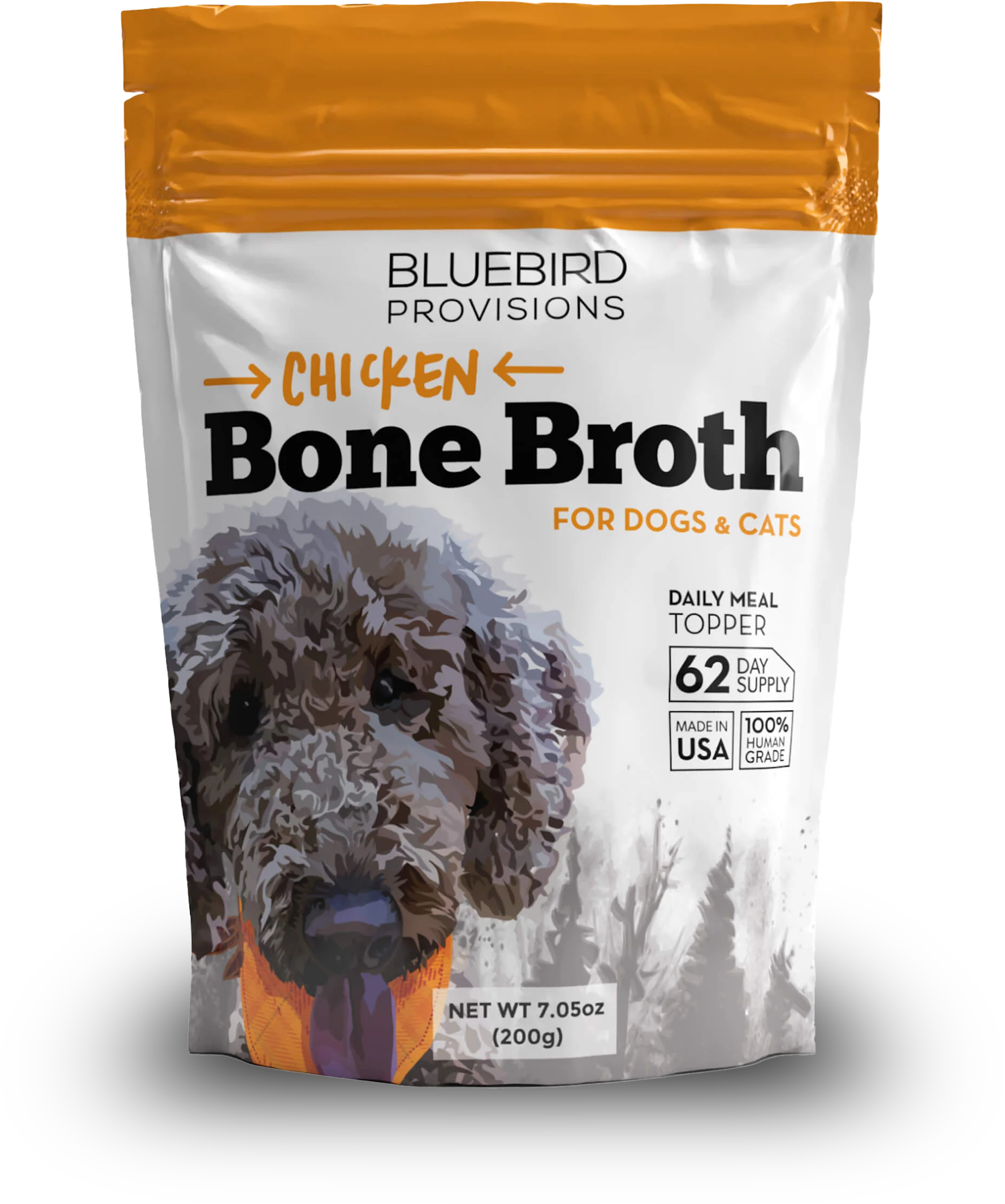
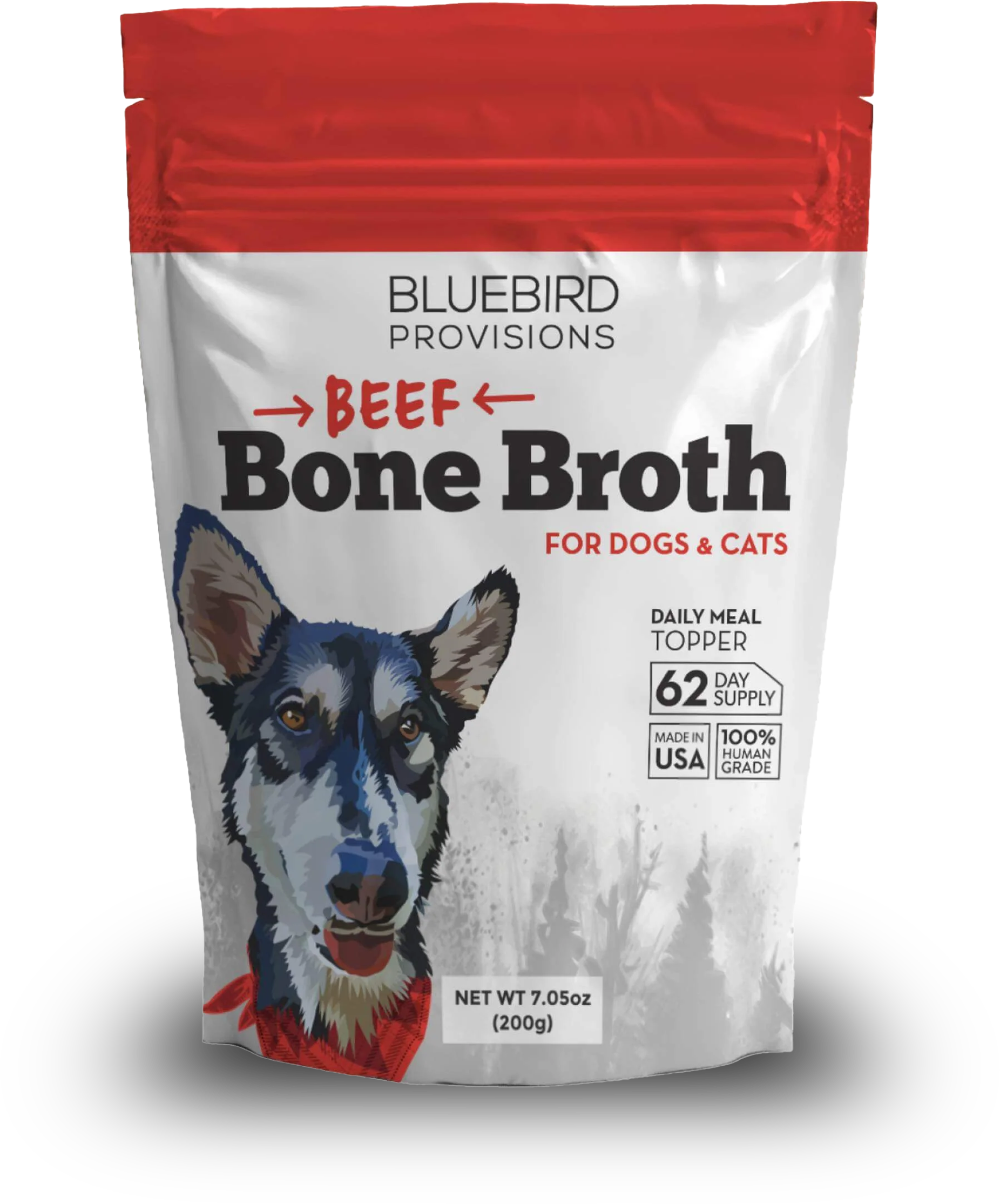
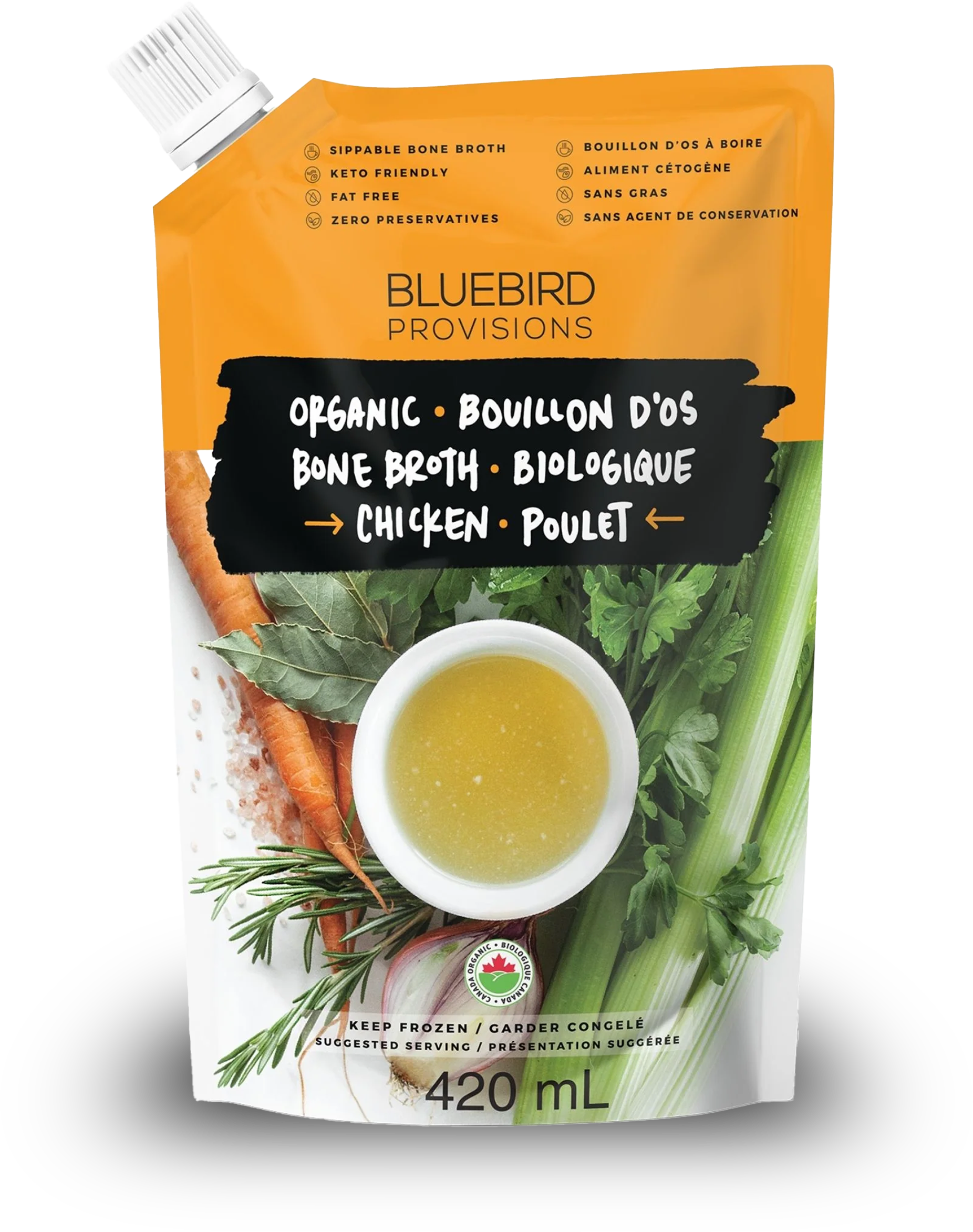
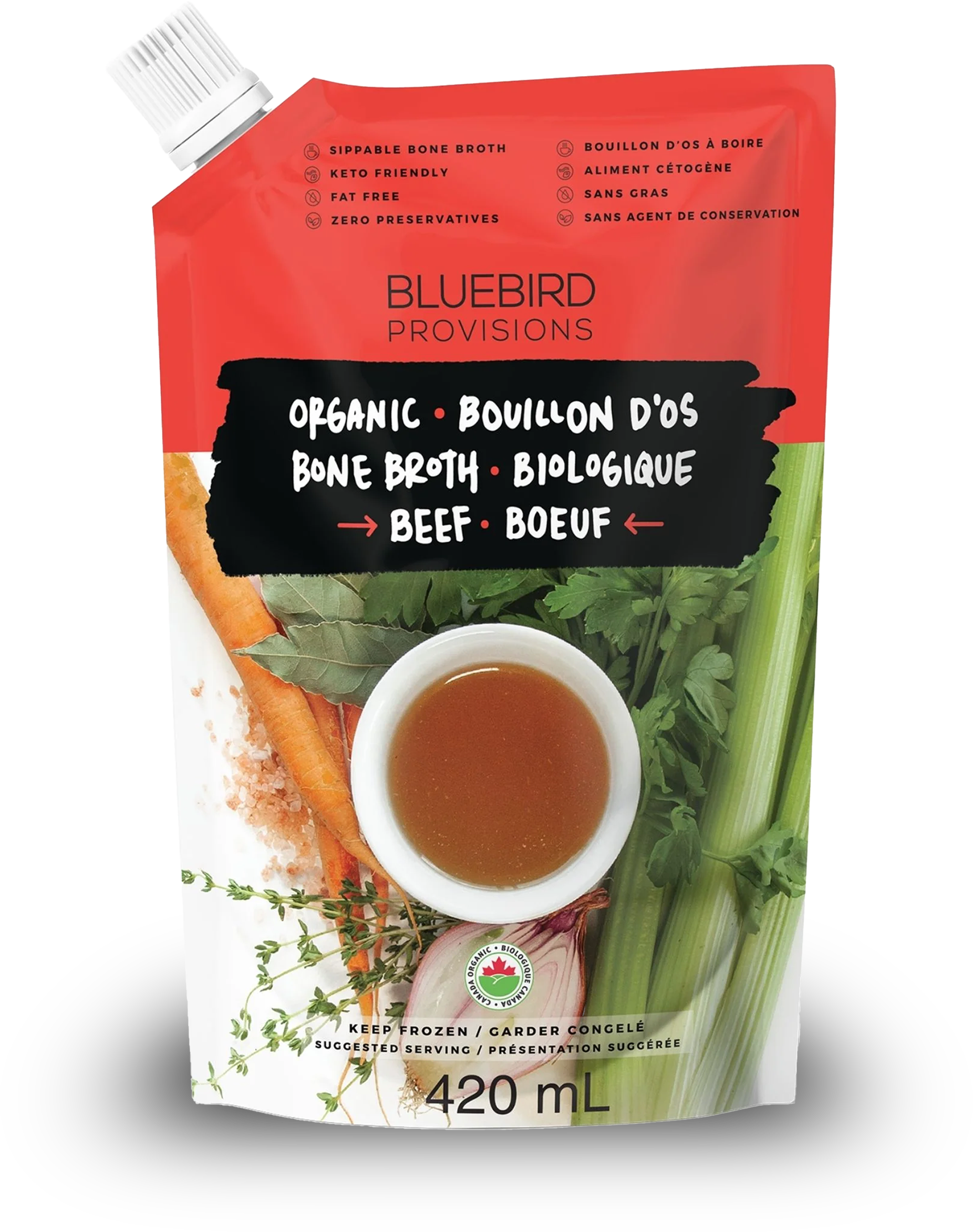


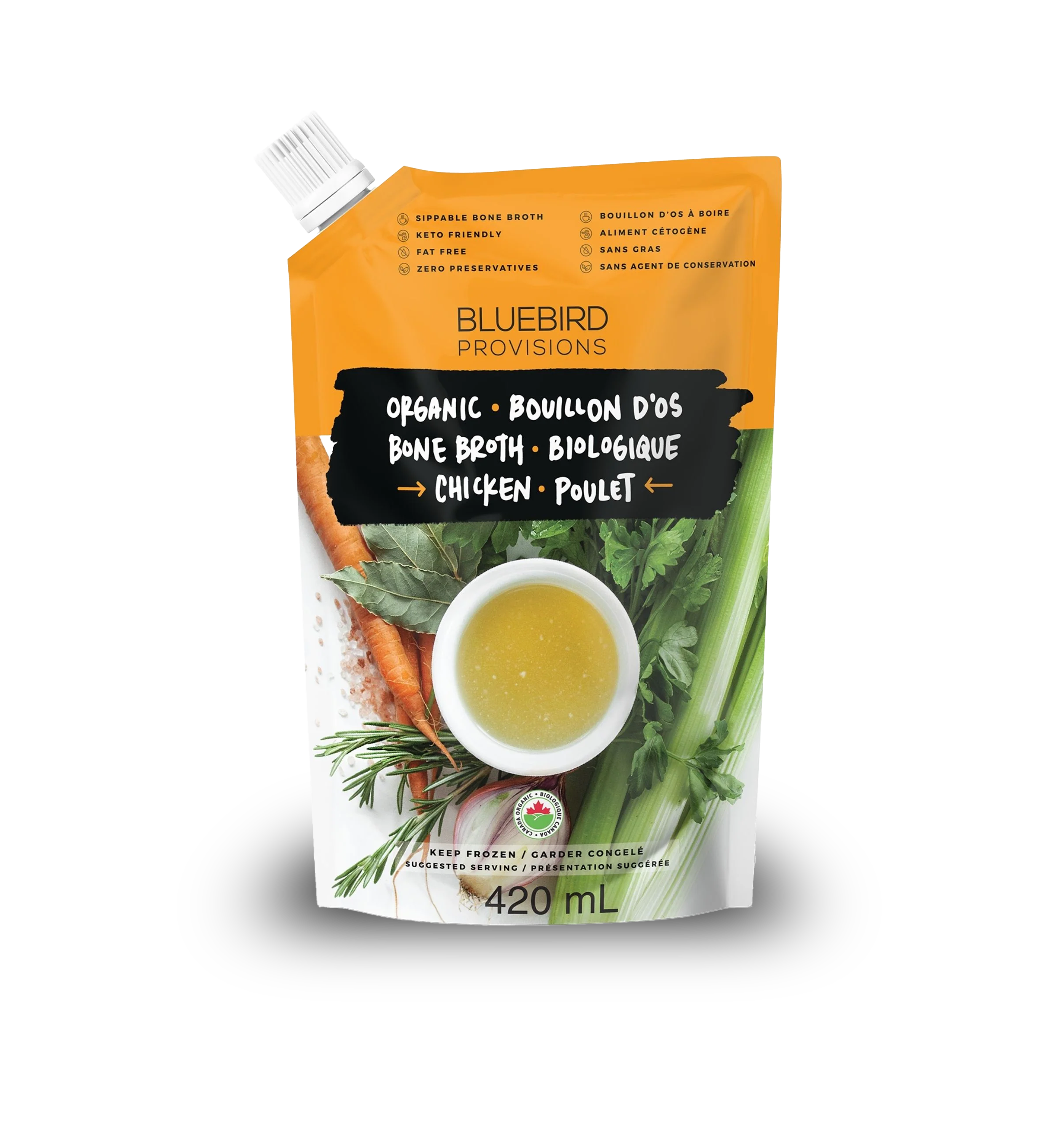
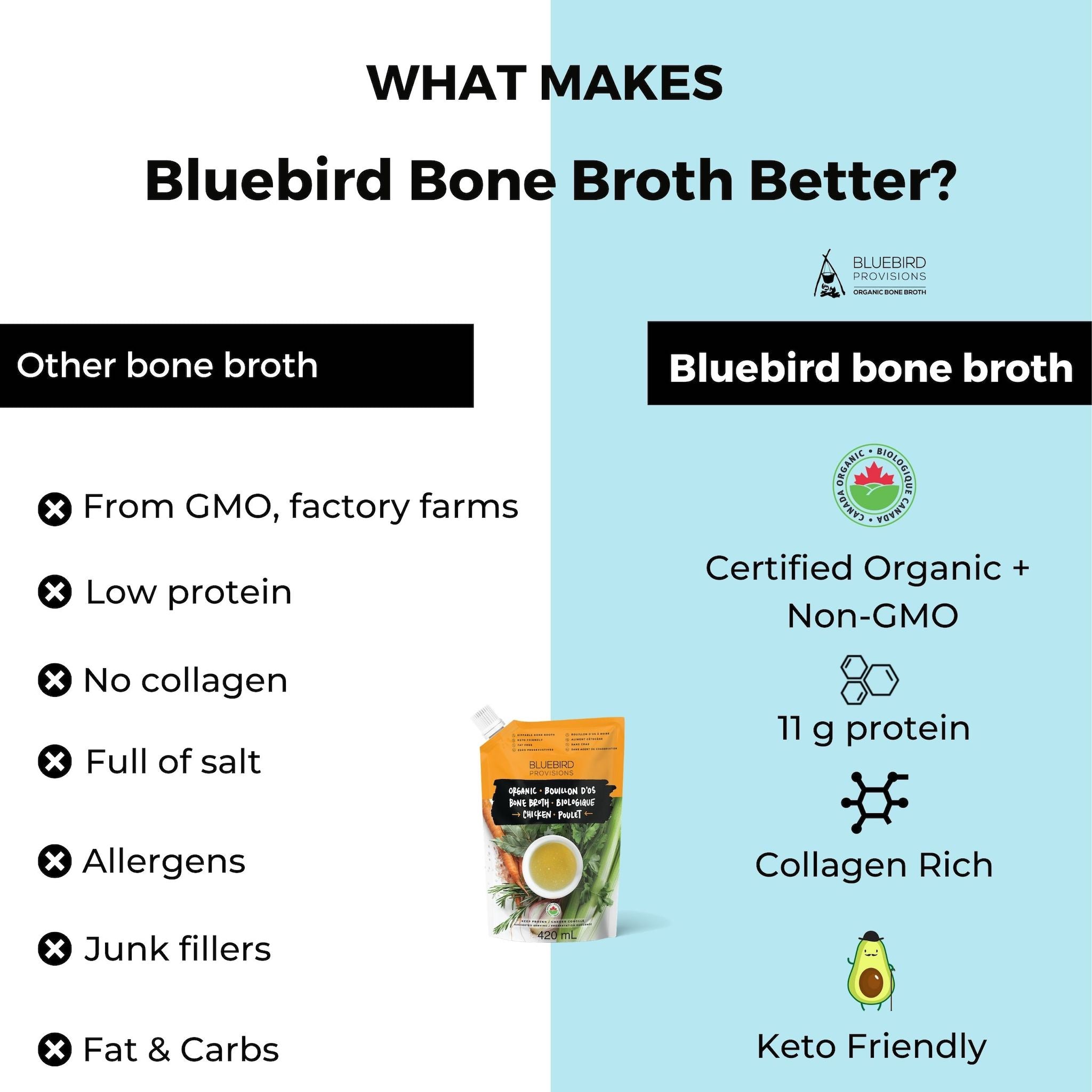
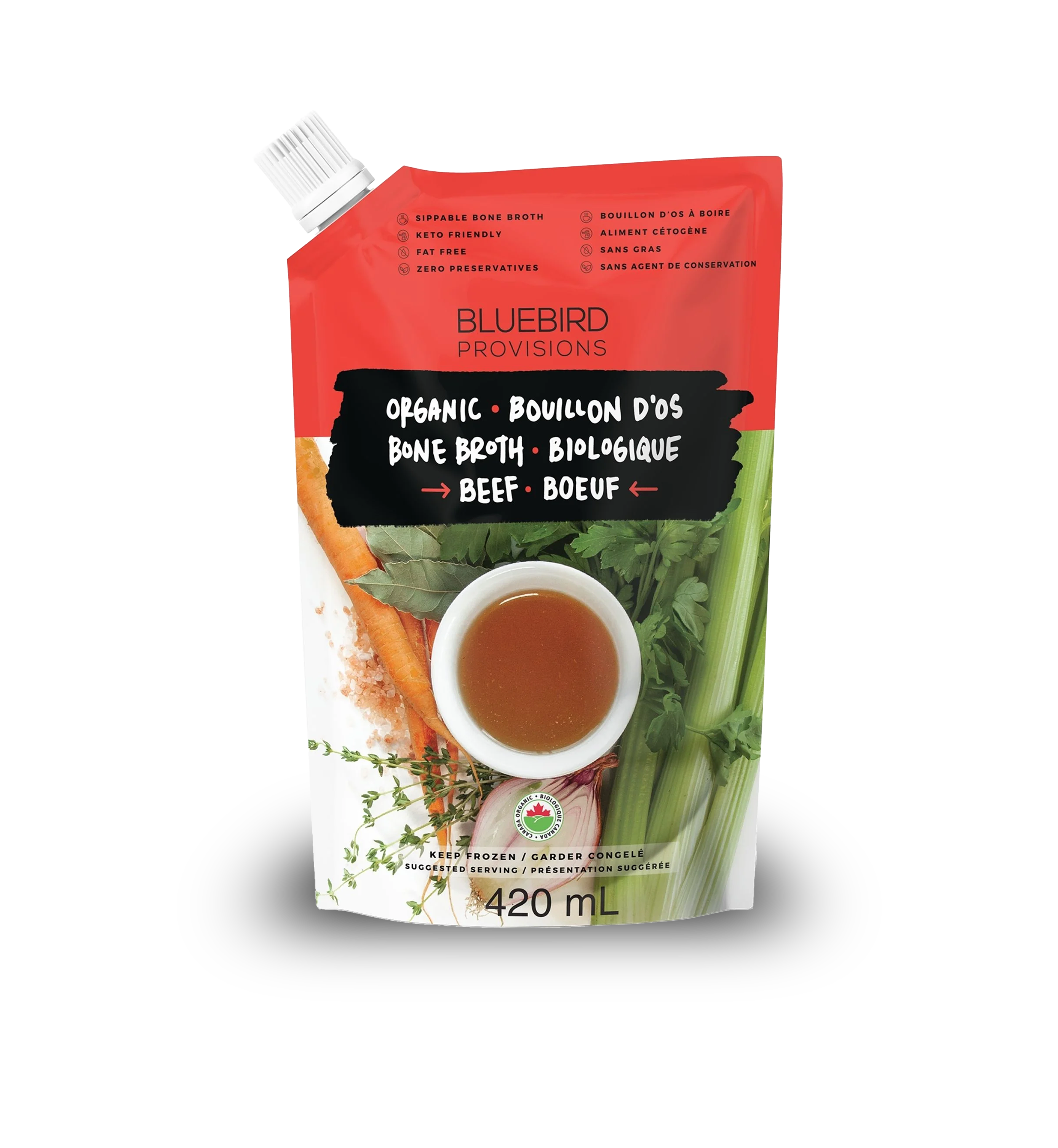
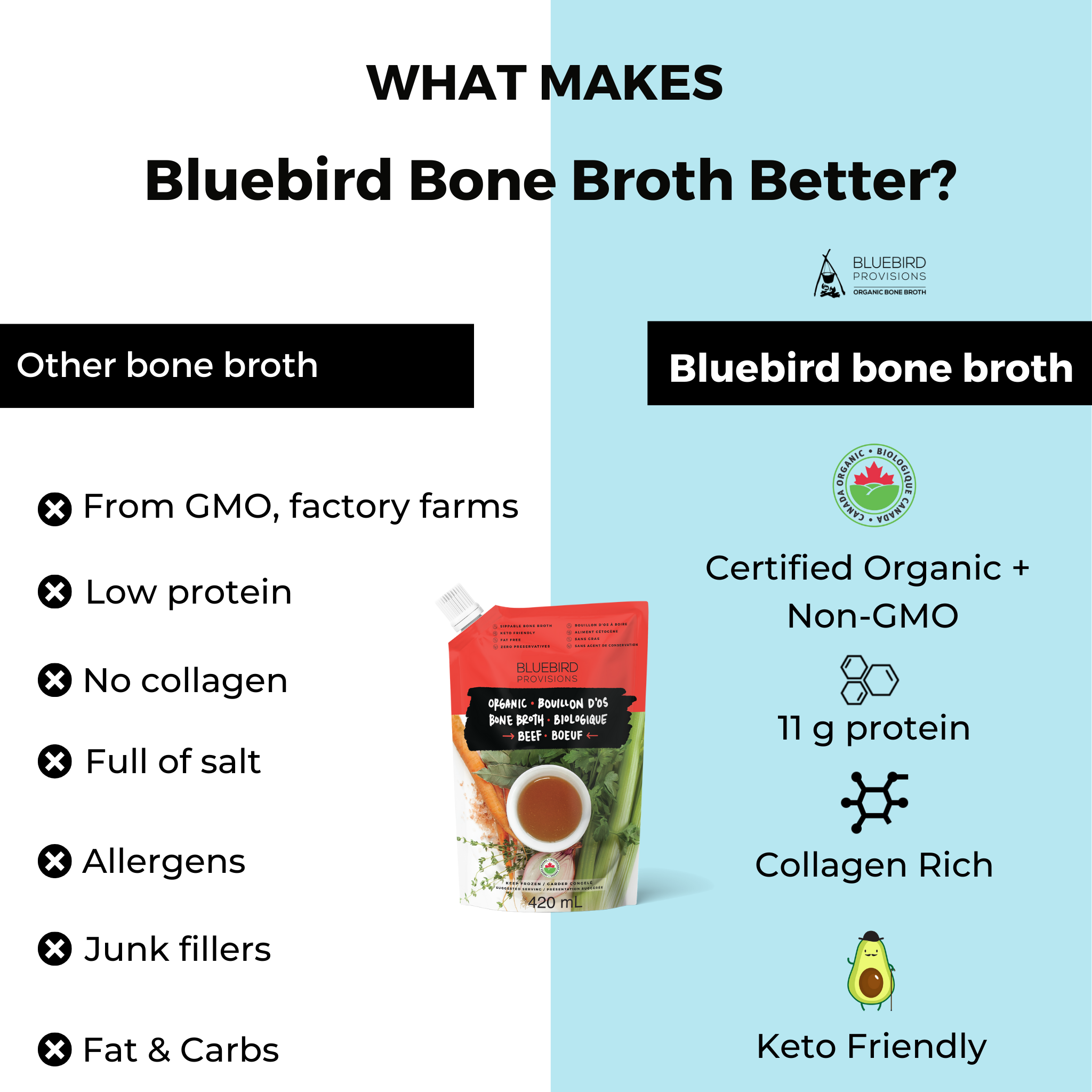
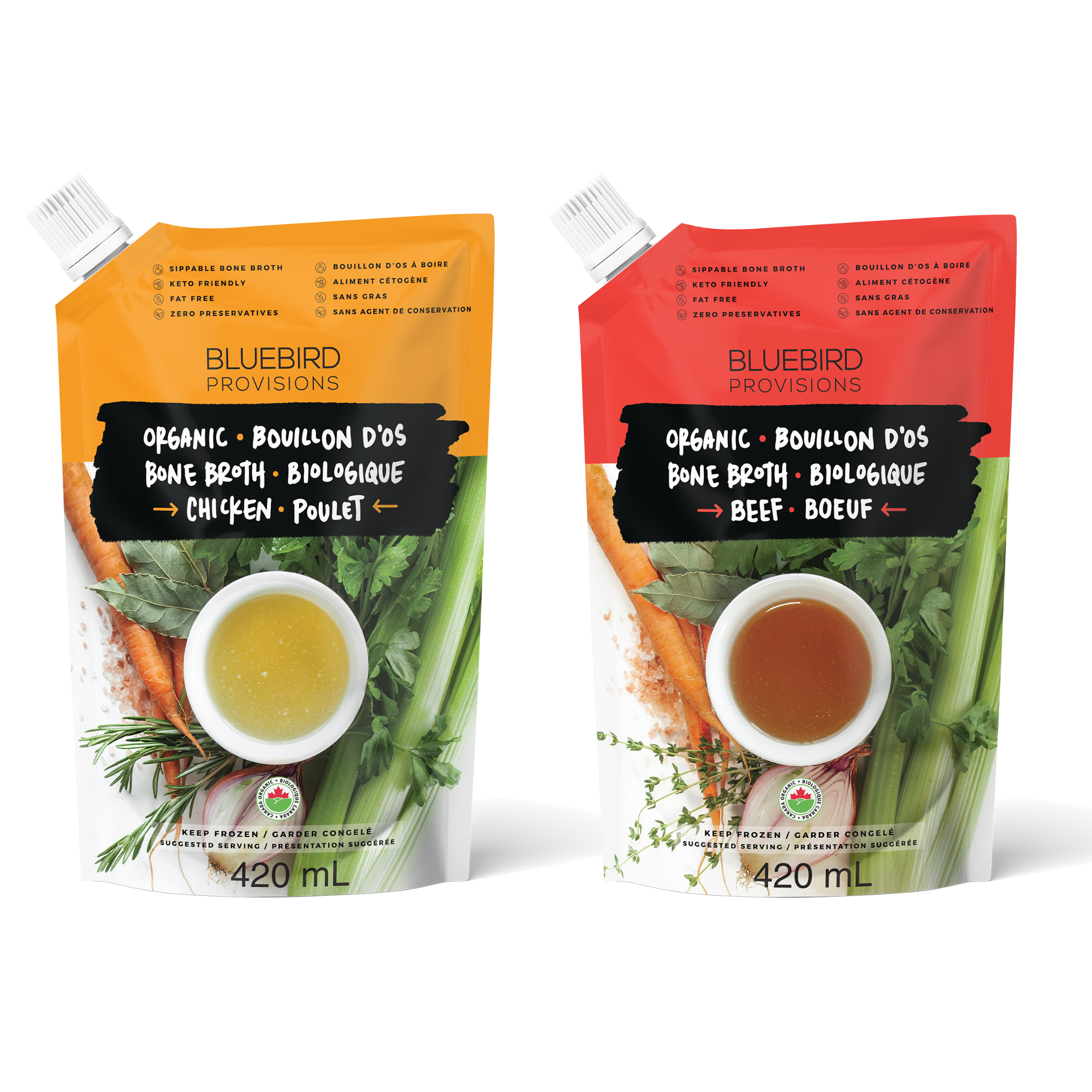

Leave a comment
This site is protected by hCaptcha and the hCaptcha Privacy Policy and Terms of Service apply.